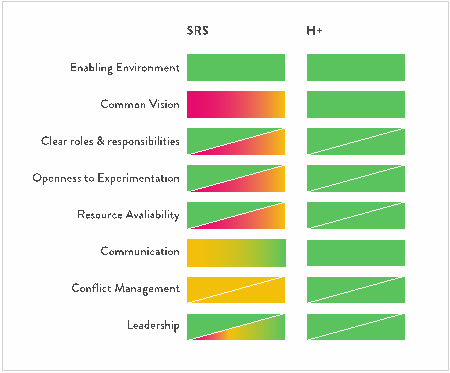
Two recent studies from the group have pointed at the importance of good leadership and common visions for successfully implementation of new water and wastewater systems.
A theory-building case-study of community-based water and wastewater systems in Cochabamba, Bolivia identified four prerequisites for success: leadership, agreed vision, collective action and management. The study builds a framework of prerequisites and enabling factors that may be used by policy makers and development practitioners to strengthen community management and support community-based organisations in providing water and sanitation services.
Another study studied the decision-making processes in Helsingborg and Stockholm in order to understand why Helsingborg has succeeded in implementing an innovative source-separating wastewater systems while Stockholm has not (yet). This study found that the Helsingborg case fulfilled critical functions such as common vision, leadership, cross-sectoral cooperation, and an innovative approach both within the utility and in the city administration in Helsingborg. While In Stockholm there was a lack of common vision and of cross-sectoral cooperation and leadership. Comparison of the stalled source-separation policy in Stockholm with a successfully implemented environmental policy in a related field found a key criteria to be the presence of inspired individuals in positions where they had the mandate as well as the ability to create a common vision for change.
Investments in innovative urban sanitation – Decision-making processes in Sweden
Contact: Jennifer McConville
